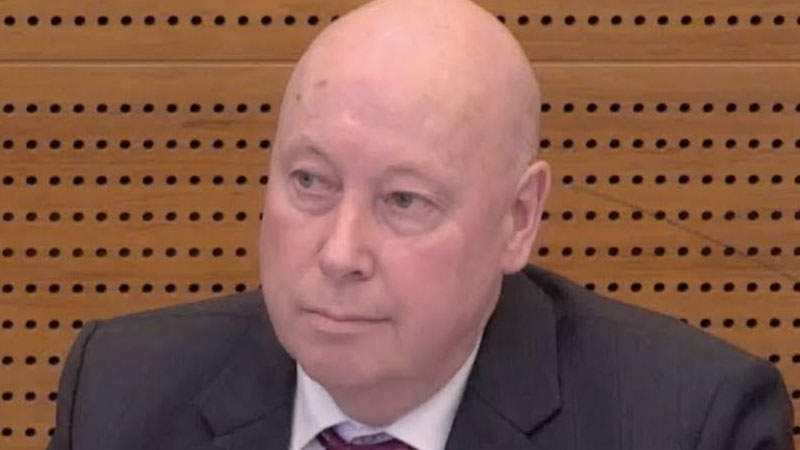FASEA exam processes revealed
On the first day of the virtual ifa Business Strategy Day for 2021, the standards authority revealed how its exam questions are assessed and decided upon, while the founder of a major aligned advice group shared his thoughts on where the industry is heading in the next five years.
In the first session of sister brand ifa’s two-day virtual event, FASEA chief executive Stephen Glenfield shared that more than 1,200 students were now enrolled in approved degrees as the industry moved towards a profession.
Amid concerns that many advisers would fail to make the deadline for exam compliance, Mr Glenfield said that the standards authority had seen a huge uptake in registrations for the March sitting of the exam, as advisers took advantage of the opportunity for multiple sittings before the end of the year.
“With a pass rate of close to nine out of every 10 advisers, by the end of March, we would expect to see 70 per cent of the FAR having gone through the exam,” Mr Glenfield said.
More than 2,300 advisers had currently registered for the March exam, according to FASEA figures.
Mr Glenfield also revealed further details around how the exam questions were developed, after some training providers in the industry have critiqued the ambiguity of the wording as a source of confusion for advisers.
“All the questions are reviewed before they make it to the exam, firstly by peer review where each writer presents their questions to other writers, and we also have an expert panel made up of industry professionals,” he said.
“FASEA also reviews each question to determine that they are fair and appropriate to put into the exam, and there’s an agreed percentage across each of the knowledge areas.”
Mr Glenfield said an “extensive process” was also undertaken with regard to the marking of the exam, and questions that were deemed too subjective could sometimes be removed from consideration.
“An extensive process is undertaken by ACER and experienced markers in the field of advice, with two independent assessments of whether the question was right or wrong,” he said.
“ACER flags questions for review by the panel and FASEA — that may be because the data indicates there’s more than one answer, in which case that question comes out of the exam marking.”
Focus on the things that matter
Shadforth Financial Group founder and Global Adviser Alpha principal David Haintz’s key message to advisers was to focus on the areas where they believe they can add the most value to clients.
“You need to be clear where you add value and where you don’t — price may be what people pay but value is what they get,” Mr Haintz said.
“A key point we need to revisit again and again is that cost is only an issue in the absence of value.”
While asset-based fees were still permissible in the current regulatory environment, Mr Haintz said it was likely these would be naturally phased out in terms of flat fees that were directly aligned with the services being provided by the adviser, rather than the returns generated by investment products.
“This is a natural evolution — there will continue to be more pressure on AUM fees, and fees will be more aligned to where the value is being delivered, that being advice and strategy,” he said.
When it came to boosting the value clients delivered to advisers, Mr Haintz said practitioners needed to focus on perfecting the client experience and streamlining as much of the administrative side of advice as possible.
“Right now, benchmarking data tells us advisers spend 40 per cent of their time in new client meetings, and nearly 50 per cent of their time in back-office matters such as administration, plan preparation and internal meetings,” he said.
“Advisers should be spending the majority of time seeing people and producing revenue, so good systems and processes are the key.”
He added that while some consumers may be choosing to self-manage their finances using online tools, “technology by itself is not the sole disruptor — it’s the customer experience or lack thereof”.
“Amazon did not kill the retail industry; the retail industry did it themselves with poor customer service,” Mr Haintz said.
“Unpack every step of the client experience, challenge yourselves and compare the customer experience with other industries that do it really well. What do clients read in reception — is it financial magazines or travel magazines?
“Are we asking questions in valuable face-to-face time like what’s your birth date or do you smoke, or are we capturing that as part of the hygiene in their own time and are we asking them more meaningful questions around core values and goals? Are we capturing what they really care about?”
More than 450 advisers registered for this year’s ifa Business Strategy Day, a two-day virtual event focused on helping practitioners to build resilient, future-proof businesses as the economy recovers from COVID-19 and the advice sector faces a once-in-a-generation transformation.
The ifa Business Strategy Day 2021 continues on 31 March. Click here for more information.

Tony Zhang
Tony Zhang is a journalist at Accountants Daily, which is the leading source of news, strategy and educational content for professionals working in the accounting sector.
Since joining the Momentum Media team in 2020, Tony has written for a range of its publications including Lawyers Weekly, Adviser Innovation, ifa and SMSF Adviser. He has been full-time on Accountants Daily since September 2021.


